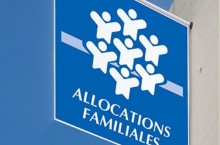CIO en VO : la belle histoire d'Asterisk, le libérateur de l'IP-PBX
Nos confrères américains ont consacré un long article à l'IP-PBX open-source Asterisk. Une occasion de se réjouir du succès de ce produit qui offre de nombreuses fonctionnalités en ToIP.
PublicitéImagine an IP voice and unified communications system that can be integrated into any application and customised to meet business needs. Sounds great, right? Well that project is the Asterisk IP-PBX and it's free to use and you get the source code. A far cry from proprietary PBX systems perhaps, but Asterisk has a vibrant ecosystem and is replacing systems from more established telephony vendors. Following interviews with the leaders of the Horde and Free Telephony projects, the Open Source Identity series talked to Asterisk founder and Digium CEO Mark Spencer about how one application can have such a profound effect on businesses and how open source can be a tough competitive landscape. When did you first discover free software and begin to develop code using open source development tools? I discovered Linux and Unix around 1993 while still attending Auburn High School. In 1994, I attended the Research Science Institute at MIT and got to know and love the Athena system. When I came home, I wanted to use it and learned Linux. Later that year, I got a job at ViperNet (which is now part of Deltacom), as its chief systems administrator at the ripe old age of 17, barely old enough to drive myself to work. The birth of Asterisk is quite a famous story -- you needed an inexpensive PBX to run your Linux support business, but what inspired you release it as an open source project? I had success with Gaim as my first major open source project. As a result, it just seemed natural to release Asterisk as open source as well, although it would be a few years later before I realised just how significant that would be. Now Asterisk is a huge success story with millions of people all around the world using it for telephone calls every day. In addition to being zero cost, what do you think has made it such a success? Asterisk has been successful in large part due to the nature of the industry -- it's a broad product with lots of highly technical contributors, it has a lot of demand for customisation, the high price of proprietary alternatives and opportunities for lots of companies to make money with an open source alternative. Furthermore, there really wasn't a single gorilla that was a monopoly in the industry, so it was much easier to break in as a new entrant. Not to mention on top of that, Linux really had paved the way to where open source was something people already had some understanding of, if not specifically in the telecom or PBX sectors. On the technology side, I think Asterisk's success was greatly built upon the strength of the contributions. It's pragmatic support of both new VoIP technologies and traditional telephony and wide host of applications that worked right out of the box. We didn't try to pick the technology that would win, we just picked a framework to support all the technologies anyone cared about and let the markets decide the winners -- and there are different winners in different markets. Moreover, Asterisk has spawned an entire industry of "embedded" Linux PBX systems, like David Rowe's Free Telephony Project. What are your thoughts on this ecosystem? Asterisk's greatest achievement may be that it has enabled so many people in so many markets to leverage its success. It is precisely this ecosystem that has caused us to change Asterisk's core focus from being "the application" to recognizing it as being "the platform" that people are using to build other applications. As such, we are focusing on improving the Asterisk API to make it easier for people to build on, rather than just focusing on throwing even more stuff into Asterisk itself. Does it challenge Digium's commercial products and support around Asterisk? Generally I think the rising tide floats all boats. However, one of the hardest parts of being the open source creator of Asterisk is seeing companies that are building businesses in competition with my own. In some cases those companies are even trying to misrepresent Asterisk's origin, attack or badmouth Digium, even as they use my own creation to build their own businesses. You don't do open source if you're not willing to put up with that risk, of course, but emotionally it doesn't make it any easier for you. What are some of the more innovative applications of Asterisk you have seen and how much more innovation is there to come with PBX systems? There are countless examples of creativity with Asterisk that I've seen. Initially the creativity was really just entirely without commercial purpose. Things like Botanicalls with plants that would call you, I Plate U where you could leave messages for people based on their licence plates, and many others. More recently, we have seen some of those projects start turning into businesses, like Switchvox, which we acquired, and Auscillate games, which uses Asterisk to create large games with large numbers of people participating using their cell phones. More recently, the IT industry is focusing on the concept of "unified communications" as a way to drive more efficiency around voice and applications integration. Where does Asterisk play here? For example, TechWorld reported on a company that has integrated Asterisk with Jabber. How many other applications work with Asterisk and what developer tools are available for this? Switchvox is one of a number of products that integrates Asterisk together with other applications. There is a great deal to UC that goes beyond just IM and fax and such. What we're really talking about with UC is unifying your communications more seamlessly with your business or personal processes. Switchvox does this for business processes with a lot of Web 2.0 integration including Salesforce.com, SugarCRM and Google Maps. The BootyDialer does this for "hooking up" by connecting your "booty call list" with automation to automatically connect you with your highest ranking, first available entry. The principle is still the same though -- integrating innovative Web applications and unifying your communications! What do you think of Microsoft's entrance into the software PBX space with Office Communications Server? Can a proprietary software PBX succeed in a space dominated by black-box appliances and open source systems like Asterisk? Microsoft is a company I definitely worry about, largely because I think it will try to leverage the desktop experience into the back office with OCS similarly to how they did it with Exchange. Nobody uses Exchange for SMTP, they only use it because they have to for Outlook, or at least had to until Zimbra enabled you to get all the same functionality without Exchange. That's why one of our major focuses has to be on the Windows desktop experience -- otherwise we will be vulnerable to people getting OCS forced on them because of the Windows experience. Another hot topic at the moment is cloud computing. Telephony vendors like Cisco and Microsoft are working towards fully hosted unified communications offerings where all the customer needs is an Internet connection and the application integration lives in the cloud. Do you think this is a realistic goal and what role can Asterisk play in such an architecture? Certainly a fully or partially hosted model is possible, and of course is already being done by a number of providers, including Digium, using Asterisk. The key is that with the hosted versus managed versus premise-based [architecture] each has a different set of advantages and weaknesses, especially with varying sizes of companies. What makes Asterisk, and especially Switchvox, particularly valuable in this area is that you can seamlessly migrate from hosted to premise and back as the nature and size of the business demands it -- something pretty unique in the industry. When you're not running Digium what are some of your favorite interests? I like riding four wheelers and flying airplanes and in good weather driving my hot rod! I guess I've developed an interest in vehicles with either four wheels or three wheels and a wing. So far I'm avoiding any two-wheel vehicles! Rodney Gedda - Copyright © 2008 IDG News Service. All rights reserved. IDG News Service is a trademark of International Data Group, Inc.
Article rédigé par
IDG News Service










Commentaire
INFORMATION
Vous devez être connecté à votre compte CIO pour poster un commentaire.
Cliquez ici pour vous connecter
Pas encore inscrit ? s'inscrire